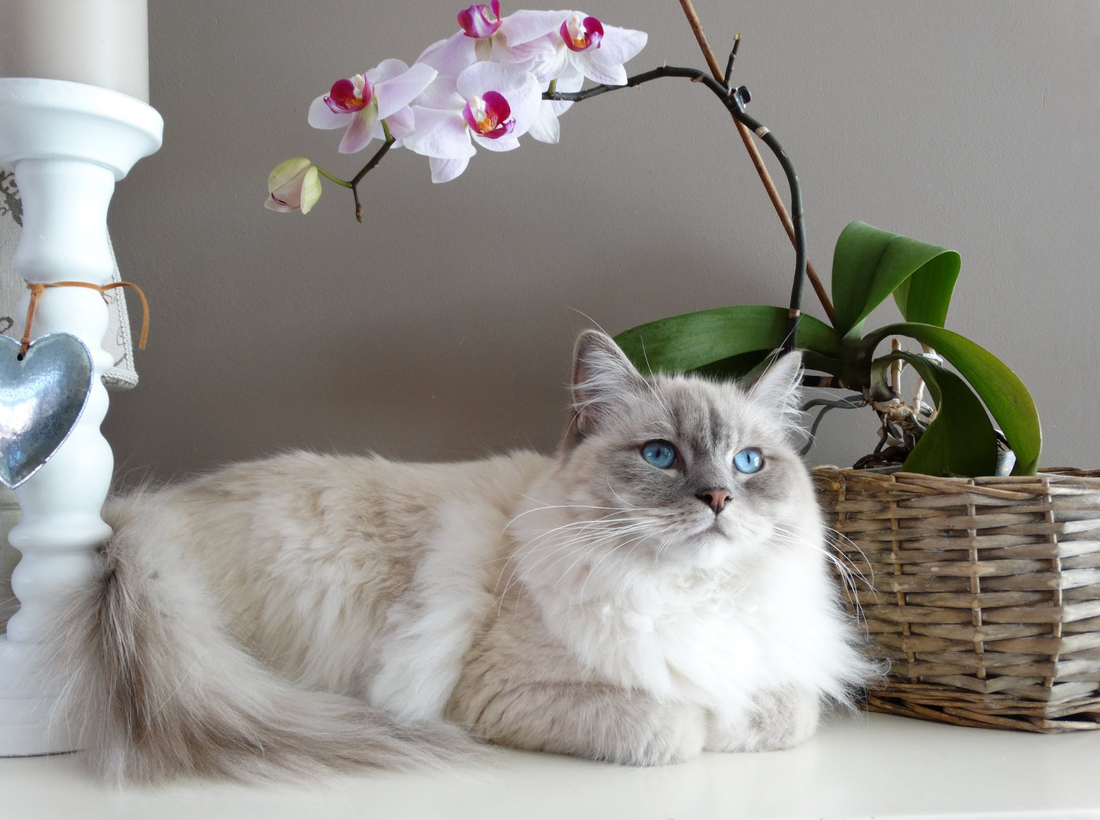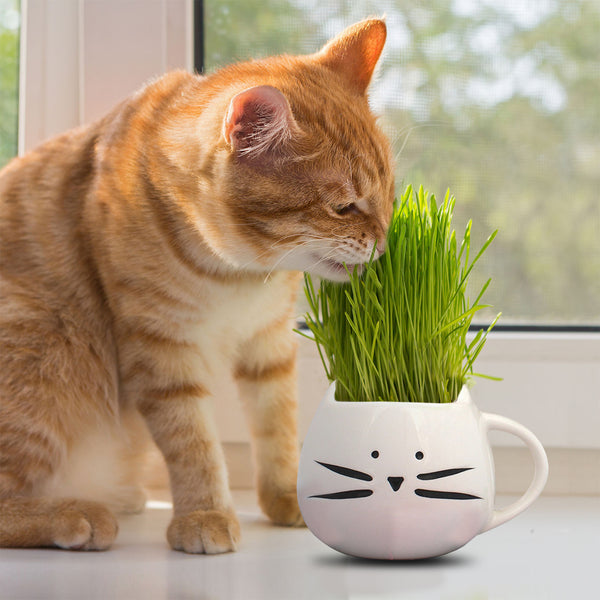
Indoor vs Outdoor Cats: What's The Difference?
Share
If you get a cat that has previously been an indoor-outdoor cat, it can be more difficult to keep them inside. Similarly, indoor cats that have never been into the outside world may be reluctant to go out, which can be a concern for their owners who want the best for their feline friend. However, if you buy or adopt a kitten, you may be facing the decision of whether to let them outside or keep your cat indoors.
The question of indoor vs outdoor cats is one that many people find themselves having to explore. It can be an issue of location and culture, with outdoor cats being much more normalized in some places than others. But, for many people, it’s an individual decision that they need to consider carefully. Which is the better choice for the cat? What other factors might need to be considered? And does an indoor cat have different needs compared to an outdoor cat?
Do Indoor Cats and Outdoor Cats Need to Be Treated Differently?
There are several ways you need to approach the care of outdoor cats and indoor cats differently. They have different needs due to the environment they live in. For an indoor only cat, ensuring they receive adequate mental and physical stimulation is crucial to prevent boredom and behavioral issues. For example, an outdoor cat is more exposed to the dangers of the outside world. On the other hand, keeping cats indoors means ensuring that they receive the stimulation and exercise that they need.
Keeping an Outdoor Cat Safe
Cat owners who let their cats go outside need to consider a number of health issues that are more likely to arise with outdoor cats. For example, an outdoor cat is more likely to contract infectious diseases, passed on from other cats. These include feline immunodeficiency virus (FIV), feline leukemia virus, feline infectious peritonitis, and feline distemper. Fortunately, vaccines are available for many of the diseases that cats can contract. It’s important to stay up to date with vaccinations, especially for outdoor cats. Parasites are another concern, and it’s important for cats to have regular preventive treatments for worms, fleas, and ticks.
Roaming cats are at a higher risk of encountering dangers such as traffic, predators, and territorial disputes with other cats.
Outdoor cats face other outdoor hazards, including wildlife and vehicles. Depending on where you live, your cat could be in danger from large mammal predators, birds of prey, and other animals, including cats and dogs.
Another concern is that cats are wont to follow their natural instincts. This means that they might hunt birds and could have an impact on wildlife populations while exploring the great outdoors. Some cat owners solve this issue by keeping their domestic cats within a safe area, such as a covered backyard or a “catio”.

How long do indoor cats live?
Indoor cats are generally known to have a longer lifespan than their outdoor counterparts. Many cats benefit from the safety and stability of an indoor environment, which contributes to their longer lifespan. Most indoor cats live on average around 15 to 20 years, and some can even live well into their 20’s or early 30’s. The controlled environment of living indoors helps protect them from the dangers of the outdoors (disease, predators, etc.). To ensure a long life for your indoor cat we recommend providing them with a stimulating environment, balanced diet, regular veterinary care, and companionship.
Meeting the Needs of an Indoor Cat
Indoor cats, of course, have some of the same needs as outdoor cats. It’s still important to protect them from disease and parasites, and other health concerns. They are less likely to pick up any nasty illnesses or parasites, but it is still possible, especially as they will sometimes have to go outside of your home. Staying up to date with vaccinations, heartworm medications and the like is still a must.
However, indoor cats also have their own needs. If you keep a cat inside, you need to be prepared to provide them with entertainment and stimulation. Indoor cats tend to get bored if they don’t get the interaction that they need. Boredom can lead to scratching furniture and other problems. There are many ways to address this issue, including playing with your cat regularly. Interactive toys are a great choice to help keep your cat engaged. Providing a scratching post can help to prevent furniture scratching and keep your cat’s claws healthy too. Providing outdoor access through a secure catio can offer indoor cats the opportunity to experience the outdoors safely.
Indoor-only cats typically have a longer life expectancy compared to those who enjoy outdoor living. On average, outdoor cats live just two to five years, while indoor cats live for 10 to 20. It’s clear why this is the case when keeping cats inside keeps them away from busy streets and can prevent certain health conditions.
Why All Cats Need Cat Grass: Benefits of Cat Grass
Whether your cat is an indoor cat or an outdoor cat, all cats need to be stimulated and provided with ways to act out their animal instincts. Pet cats, whether they live indoors or outdoors, can benefit greatly from the addition of cat grass to their environment. If you are a cat owner looking for ways to provide the best care to your cat, one of the best things you can do is provide them with grass. Cat grass provides several excellent benefits to all cats, both as a dietary supplement and as a way to stimulate their senses.
Cat grass helps to control hairballs, and gives your cat essential protein and vitamins. Cats will instinctively eat grass or sometimes just like to rub up against it to feel it between their whiskers. It’s really easy to grow at home too with cat grass kits from The Cat Ladies.
SHOP THE CAT LADIES
 Indoor vs Outdoor cats FAQ's
Indoor vs Outdoor cats FAQ's
How can I enrich the life of my indoor cat to compensate for the lack of outdoor experiences?
Enriching the life of an indoor cat is essential. You can provide mental stimulation through toys, puzzles, and interactive play. Consider creating a safe outdoor space like a catio or providing scratching posts, climbing structures, and companionship can also improve their indoor environment. One of the easiest ways to provide stimulation and a healthy outdoor-like environment for an indoor cat is with cat grass! Cat grass is packed with nutrients, provides mental stimulation, and many other benefits!
Can indoor cats get fleas?
Yes, indoor cats can get fleas, however, the risk is generally lower compared to outdoor cats. Fleas can be brought inside your home in many ways, such as on your clothing, shoes, or by other pets that go outdoors. They can also hitch a ride on rodents or other animals that find their way into your home. Once fleas find their way inside, they can infest your indoor cat and your living space